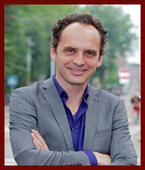 Lex Veldboer Lex Veldboer |
Professor Urban Social Work, Amsterdam University Applied Science. He is the representative of the organizing university and teaches social work at this university. He studied political science and obtained his PhD on the subject of distance and engagement in the mixed neighbourhood. His current research is on social exclusion in deprived urban areas and the ways social workers are working under these complex circumstances. He contributed to the book Denken over sociaal werk (Thinking about social work) which provides a theoretical compass for social work in relation to social change and social justice.
Social Inclusion in times of under-resourced urban social work
For most deprived groups the (urban) neighbourhood is the spatial level for social inclusion. In the Netherlands and other European countries urban social work is increasingly seen as an important community-based actor and partner for improving the abilities and opportunities for deprived individuals and groups for their inclusion in fields of health, economy, sustainable housing and neighborhood governance. Social workers aspire to fulfill a prominent role in raising opportunities for people to participate socially and to raise their voice.
Is social work at the neighbourhood level fully equipped for this broad inclusion-task? Similar to findings on other domains like care, education, sports and libraries, research on social work increasingly refers to under-resourced and understaffed facilities in neighbourhoods. Local governments face national austerity cuts and are hardly able to avoid these cuts being ‘downloaded’ to deprived groups and areas. Although deprived neighbourhoods in the Netherlands show average levels of citizen self-organization and sometimes receive compensating funds, these important extra hands and funds do not fully meet the needs of the population. Relative shortcomings in availability and quality of facilities make the work for social professionals hard and have impact on their work and decisions. Based on a review of the literature and own research the lecture will focus on the consequences that (relatively) under-resourced social work in urban neighborhoods has for social inclusion. Is it a matter of low equipment and (potential) high results with promising (re)inventions such as collective ‘groupwork’? Or do we face the threat of a maldistributed social infrastructure and of disproportional ‘deprivation amplification’? And what are the opportunities for a stronger embedding of social work/ the social field in residential neigborhood policies for social inclusion?
ECSWR2022
 Registration website for ECSWR2022
Registration website for ECSWR2022UvA Conferences & Eventscongres@uva.nl
UvA Conferences & Eventscongres@uva.nlhttps://www.ecswr2022.org
2022-04-06
2022-04-08
OfflineEventAttendanceMode
EventScheduled
ECSWR2022ECSWR20220.00EUROnlineOnly2019-01-01T00:00:00Z
Sea Palace (conference dinner)Sea Palace (conference dinner)Oosterdokskade 8 1011 AE Amsterdam Netherlands
